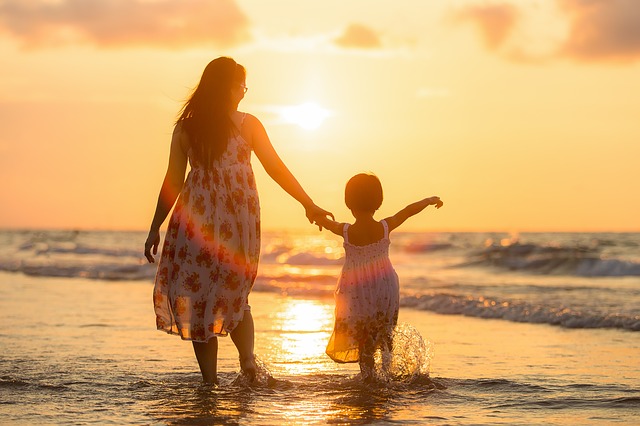A mindful check-in is a way of becoming aware of your internal state at any point in your day. You can check-in to your breath, your body sensations or your feelings. You don’t have to adopt a particular posture or location – it is just a matter of tuning in to whatever is happening for you with curiosity and openness and without judgment. Regular mindful check-ins help to build your awareness and to realise the benefits of mindfulness.
Benefits of mindfulness
Dr. Chris Walsh maintains that mindfulness achieves positive outcomes in three core areas of our lives:
- Richer pleasant experiences – so much of our life is lived in anticipation of the future or regret about the past. We are often lost in our thoughts and become disconnected from the present moment. The simple act of eating can be a totally unconscious activity, being unaware of our accompanying bodily sensations that potentially bring joy, e.g. a pleasant taste or aroma. We walk at a fast pace rather than enjoy the experience of walking; we give a sidelong glance at a sunrise, rather than soaking up the brightness and energy of the experience. We can be self-absorbed in conversations, rather than actively listening and building our relationships. Mindfulness helps to enrich what is pleasurable in our lives – to notice and pay attention to the experience of joy and happiness in whatever form it takes.
- Improved capacity to manage difficult experiences – so often we are just reactive when an unpleasant experience or conflict triggers our habituated thoughts and emotions. Through mindfulness, we can grow in the self-awareness necessary to observe, understand and manage our reactivity. Mindfulness, then, gives us the ability to create space between the trigger and our response and to develop more productive and appropriate responses. The Mindful Nation UK Report produced by the Mindfulness All-Party Parliamentary Group (MAPPG) gives evidence-based examples of these outcomes being achieved through mindfulness training.
- Effectively managing transitions – so much of our life is spent in transitioning from one situation to another. We go from home to work, from one meeting to another, from one encounter to another, from work to home. On a more macro level, we may transition from unmarried to married, from childless to children as part of the family, from marriage to separation and divorce. Each of these transitions place new demands on our capacity to cope, on our even-mindedness and our resilience. Mindfulness helps us to manage the inevitable emotional challenges inherent in change and to bring positive intentions and motivation to each form of transition and to achieve calmness and equanimity despite the personal turbulence engendered by the transition.
The check-in proposed by Chris is a way of bringing mindfulness to each of these core areas of our life and to tap into our inner resources so that we can live our lives more fully, less reactively and more flexibly.
The Mindful Check-in
Chris provides a podcast as well as a descriptive article on the check-in process. His guided three-minute meditation in the podcast leads you through various stages of awareness – beginning with your breath and its characteristics, followed by noticing any points of bodily tension and observing the pattern of your thoughts (e.g. unfocused, confused, clear or erratic). This awareness raising and acceptance-of-what-is leads to paying attention to any dominant thought that may be preoccupying you and then letting it go (stop entertaining it). Finally, you can bring your awareness to your overall emotional state and name your feeling (without judgement).
Chris, who developed mindfulness.org.au in 2004, provides a wide range of resources and a recently developed course, From Relaxation to Resilience. This course has three different levels of participation depending on level of experience with mindfulness. It is possible to obtain a reduced price through a Medicare rebate if a referral from a GP is obtained. Chris offers blog articles on various aspects of mindfulness and emphasises employing evidence-based approaches.
Reflection
As we grow in mindfulness through reflection, meditation and mindful check-ins, we can realise the benefits of mindfulness in the core areas of our lives – pleasant experiences, difficult situations and personal transitions. Mindfulness equips us to live life more fully (appreciating its richness), manage challenging situations more effectively and make personal transitions more adaptively.
____________________________________________
Image by Sasin Tipchai from Pixabay
By Ron Passfield – Copyright (Creative Commons license, Attribution–Non Commercial–No Derivatives)
Disclosure: If you purchase a product through this site, I may earn a commission which will help to pay for the site, the associated Meetup group and the resources to support the blog.
